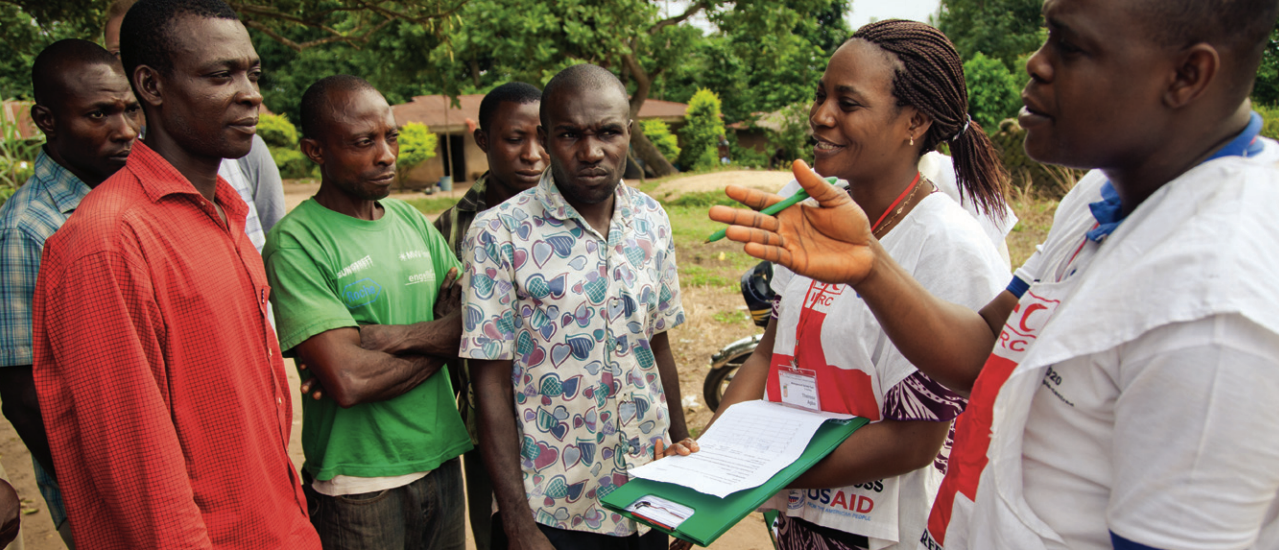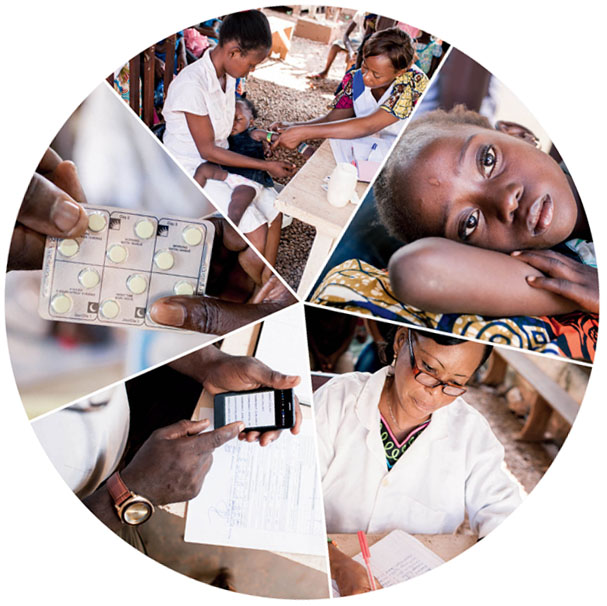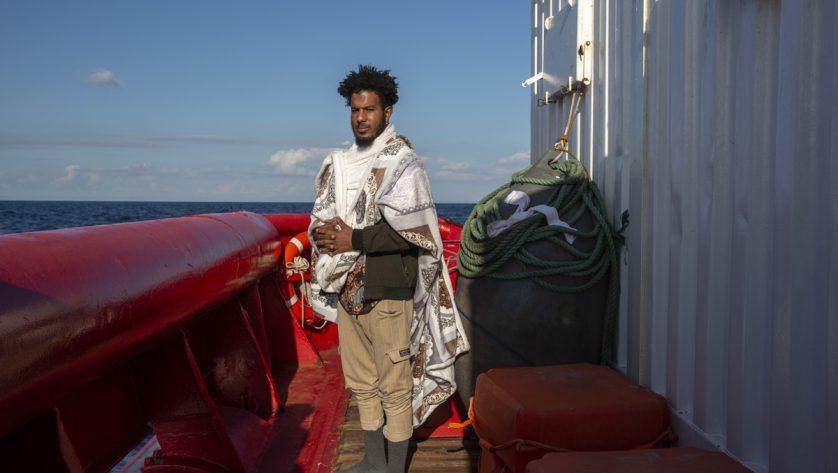Many more people are now getting drugs that will save their lives and potentially break the cycle of reinfection caused when a sick person is bitten by a mosquito capable of carrying malaria.
“The most remarkable thing is that we now get reports from areas that we never thought we would get information from,” says Désiré Takoumbo, malaria monitoring and evaluation delegate for the IFRC in the Central African Republic. “Now we know on a weekly basis where they have the drugs and where they don’t and we can use that information to save lives.”
The data were also useful in determining which facilities were still operational at any given time, given the fluidity of the fighting. Before, these reports would have to be brought by car from all corners of the country — a long and slow trek in some areas at the best of times — before the data were entered by hand into a central database. “You can imagine the task of getting 900 paper reports into the central system,” says Otten. By the time health ministry epidemiologists looked at the data, it might have been more than three months out of date.
With the RAMP system, the information is uploaded from the field to the central database in real time. “The main advantage is the rapidity with which we receive the information and with which we can put it into action,” says M’bary Siolo Mada Bebelou, a doctor of public health and malaria focal point for the IFRC in the country.
A case in point came during the early phases of the project’s implementation. “When we started, we were shocked that 30 per cent of health facilities in Bangui had no stocks of malaria drugs,” Otten says. “So we responded and after three to four months, the number of stock-outs went down to zero.”
Challenges ahead
The difficulty now is reaching the rest of the clinics that are operational but are not participating in the RAMP data collection system. Those who manage the RAMP programme say it has already proven its potential to become a system-wide health reporting tool for numerous health indicators, not just malaria. “We don’t see this is as a project database,” says Otten. “We want to build a national reporting system so that all 900 health facilities are reporting.”
Beyond malaria, for example, could the system be used more widely to track and respond to other major killers such as HIV/AIDS and tuberculosis, both of which require more complex treatment regimens and potentially new systems for tracking patients? Might RAMP be used more widely beyond the health centres to gather information about community health, as has been done with some success in Kenya, Namibia and Nigeria?
But there are challenges to scaling up even a relatively simple, low-cost system like RAMP. In contexts such as the Central African Republic, mobile phones are common but not ubiquitous and network coverage is only available for two hours a day in some areas. Then the lines are jammed with people trying to make urgent calls.
Also, many of the health staff who collect the data have a strong understanding of the medical data they need to gather. But they may not be very familiar with smartphones. Project managers quickly realized they had to expand training on smartphones from one day to three in order to ensure data were being entered and sent correctly.
No time to wait
Security problems in the country also mean that supervisors are not present in the field to correct errors or verify data. So the system relies on other checks and balances. For example, paper copies of health reports stay at the health centre and the focal points keep a copy at district headquarters. That allows for quality controls or cross-checking between what arrives in Bangui and the caseloads and use of medicines at each clinic.
 Red Cross Red Crescent magazine
Red Cross Red Crescent magazine 







 Tech & Innovation
Tech & Innovation Climate Change
Climate Change Volunteers
Volunteers Health
Health Migration
Migration